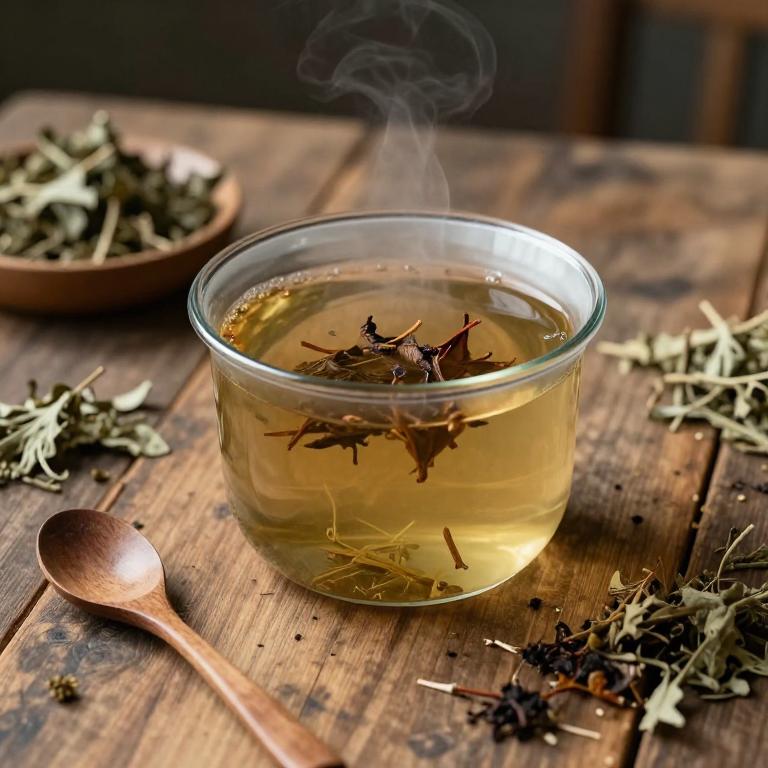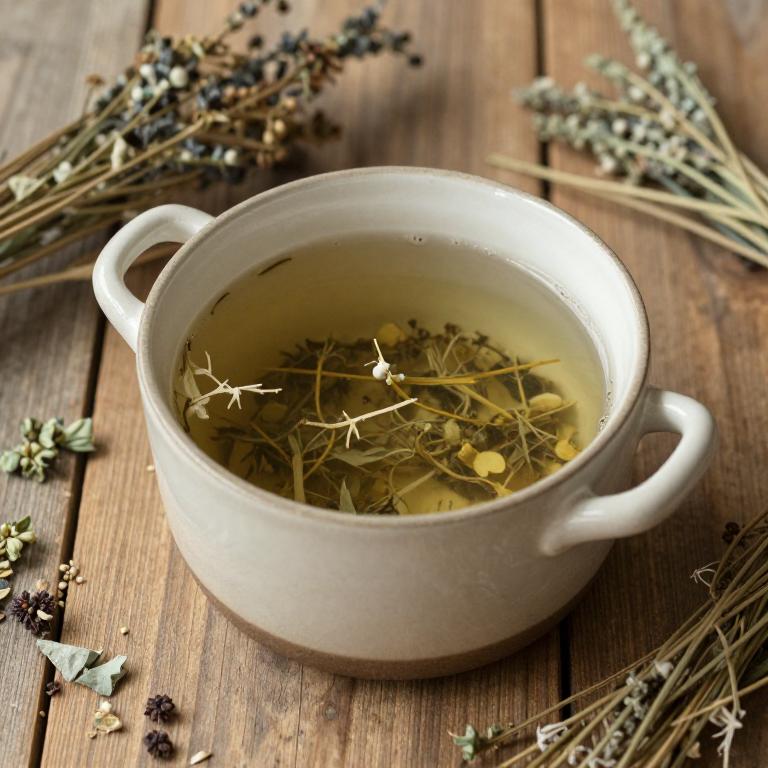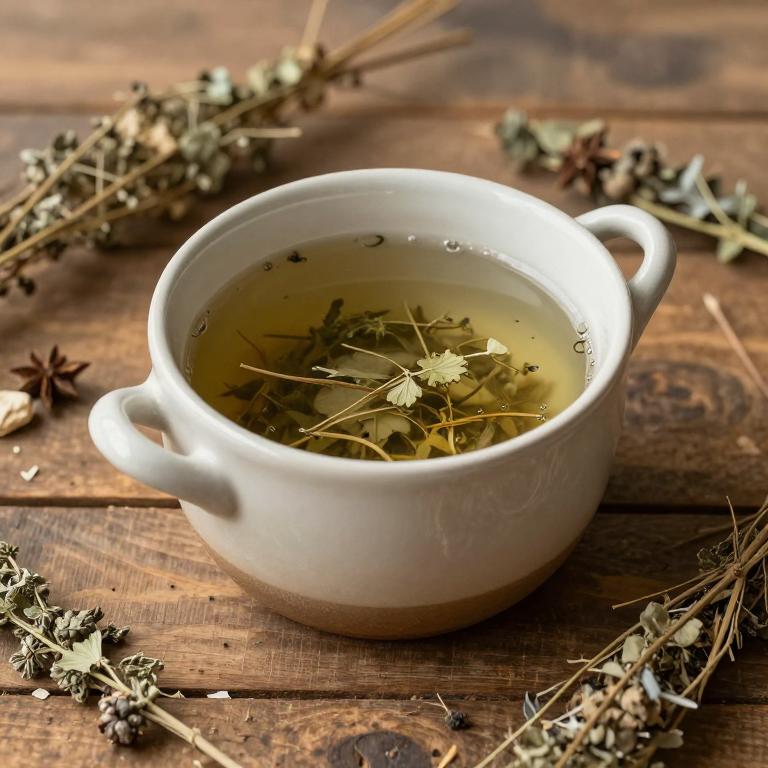10 Best Herbal Decoctions For Burns

Herbal decoctions have been traditionally used to treat burns by applying their cooling and soothing properties to the affected skin.
Common herbs such as calendula, chamomile, and aloe vera are often included in these decoctions due to their anti-inflammatory and antimicrobial effects. To prepare a decoction, the herbs are boiled in water for several minutes, then strained and applied to the burn using a clean cloth or compress. These natural remedies can help reduce pain, promote healing, and prevent infection, though they should not replace professional medical care for severe burns.
It is important to consult a healthcare provider before using herbal treatments, especially for second-degree or third-degree burns.
Table of Contents
- 1. Marigold (Calendula officinalis)
- 2. Aloe vera (Aloe barbadensis)
- 3. St. john's wort (Hypericum perforatum)
- 4. Common plantain (Plantago major)
- 5. Cancer bush (Sutherlandia frutescens)
- 6. Echinacea (Echinacea purpurea)
- 7. Dog rose (Rosa canina)
- 8. Stinging nettle (Urtica dioica)
- 9. Blessed thistle (Cnicus benedictus)
- 10. Ginger (Zingiber officinale)
1. Marigold (Calendula officinalis)

Calendula officinalis, commonly known as garden marigold, is widely used in herbal medicine for its soothing and anti-inflammatory properties.
Herbal decoctions made from dried calendula flowers are often employed to treat minor burns, including sunburns and small thermal burns, due to their ability to reduce redness and promote healing. The active compounds in calendula, such as flavonoids and triterpenes, help to protect the skin and prevent infection. To prepare a decoction, the dried flowers are steeped in hot water for several minutes, creating a gentle, cooling infusion that can be applied topically.
While calendula decoctions are generally safe, it is important to consult a healthcare provider before use, especially for more severe burns or for individuals with allergies to plants in the Asteraceae family.
2. Aloe vera (Aloe barbadensis)

Aloe barbadensis, commonly known as aloe vera, has been widely used for its soothing properties in treating burns.
The gel extracted from the leaves of the plant contains various bioactive compounds such as polysaccharides, enzymes, and antioxidants that promote skin healing. When prepared as a herbal decoction, aloe vera can help reduce inflammation, pain, and the risk of infection in minor burns. However, it is important to note that the effectiveness of aloe vera may vary depending on the preparation method and the severity of the burn.
While it is generally considered safe for topical use, it should not replace professional medical treatment for severe burns.
3. St. john's wort (Hypericum perforatum)

Hypericum perforatum, commonly known as St. John's Wort, is traditionally used in herbal medicine for its anti-inflammatory and analgesic properties.
When prepared as a decoction, it involves boiling the dried plant material in water to extract its active compounds, such as hypericin and hyperforin. This herbal decoction has been historically applied topically to minor burns to soothe pain and reduce inflammation due to its antioxidant effects. However, it is important to note that while some anecdotal evidence supports its use, scientific research on its efficacy for burns is limited.
As with any herbal remedy, it should be used with caution and under the guidance of a healthcare professional to avoid potential interactions or adverse effects.
4. Common plantain (Plantago major)

Plantago major, commonly known as broadleaf plantain, has been traditionally used in herbal medicine for its soothing and healing properties.
Its leaves contain mucilage, tannins, and flavonoids, which help reduce inflammation and promote skin regeneration. A decoction made from dried Plantago major leaves can be applied topically to minor burns to alleviate pain and speed up the healing process. The cooling effect of the decoction provides immediate relief, while its antimicrobial properties help prevent infection.
However, it is important to consult a healthcare professional before using plantain for more severe burns or if there are underlying health conditions.
5. Cancer bush (Sutherlandia frutescens)

Sutherlandia frutescens, also known as "cancer bush," is a traditional African plant that has been used in herbal medicine for various ailments, including burns.
Herbal decoctions of Sutherlandia frutescens are prepared by boiling the dried roots or leaves in water to extract their active compounds. These decoctions are believed to possess anti-inflammatory and analgesic properties that may help in reducing pain and inflammation associated with burns. However, while some preliminary studies suggest potential therapeutic benefits, more rigorous clinical research is needed to confirm their efficacy and safety for burn treatment.
As with any herbal remedy, it is important to consult a healthcare professional before using Sutherlandia frutescens for burns, especially in conjunction with conventional medical treatments.
6. Echinacea (Echinacea purpurea)

Echinacea purpurea, commonly known as purple coneflower, is a traditional herbal remedy that has been explored for its potential benefits in treating burns.
Herbal decoctions of Echinacea purpurea are prepared by boiling the dried roots, leaves, and flowers in water to extract its active compounds. These decoctions are believed to possess anti-inflammatory, antimicrobial, and wound-healing properties that may aid in the recovery from burn injuries. However, while some preliminary studies suggest possible therapeutic effects, more rigorous clinical research is needed to confirm their efficacy and safety for burn treatment.
It is important to consult with a healthcare professional before using Echinacea-based remedies, as they may interact with other medications or have adverse effects in certain individuals.
7. Dog rose (Rosa canina)

Rosa canina, commonly known as dog rose, has been traditionally used in herbal medicine for its soothing and anti-inflammatory properties.
Herbal decoctions made from the dried flowers and fruits of Rosa canina are often employed to treat minor burns due to their high content of antioxidants and vitamins, particularly vitamin C. These decoctions are believed to help reduce pain, inflammation, and promote the healing process by supporting skin regeneration. When applied topically, the decoction can provide a cooling effect and may help prevent infection.
However, it is important to consult with a healthcare professional before using Rosa canina decoctions on burns, especially for severe cases, to ensure safety and proper treatment.
8. Stinging nettle (Urtica dioica)

Urtica dioica, commonly known as stinging nettle, has been traditionally used in herbal medicine for its anti-inflammatory and soothing properties.
When prepared as a decoction, the plant's leaves and stems are boiled to extract their active compounds, including flavonoids and polysaccharides, which may help reduce pain and promote healing in burn injuries. While some studies suggest that nettle decoctions can provide relief from mild burns by reducing inflammation and preventing infection, it is important to note that they should not replace professional medical care for severe burns. The decoction is typically applied topically as a compress or rinse, and its use should be done with caution to avoid further irritation.
Overall, urtica dioica may serve as a complementary therapy for minor burns, but it is not a substitute for conventional burn treatments.
9. Blessed thistle (Cnicus benedictus)

Cnicus benedictus, commonly known as St. Benedict's weed, has been traditionally used in herbal medicine for its soothing properties.
Herbal decoctions made from the dried leaves and flowers of Cnicus benedictus are often prepared by boiling the plant material in water for several minutes to extract its active compounds. These decoctions are believed to possess anti-inflammatory and analgesic properties that may help reduce pain and promote healing in minor burns. The plant's high content of flavonoids and other bioactive compounds contributes to its potential therapeutic effects.
While more scientific research is needed, historical use suggests that Cnicus benedictus decoctions may offer a natural alternative for managing the symptoms of burns.
10. Ginger (Zingiber officinale)

Zingiber officinale, commonly known as ginger, has been traditionally used in herbal medicine for its anti-inflammatory and analgesic properties.
Herbal decoctions made from fresh or dried ginger roots can be applied topically to burns to help reduce pain and inflammation. The active compounds in ginger, such as gingerol and shogaol, contribute to its soothing effects on damaged skin. While ginger decoctions may offer some relief for minor burns, they should not replace professional medical treatment for severe burns.
It is important to consult a healthcare provider before using any herbal remedy, especially on open wounds or burns.